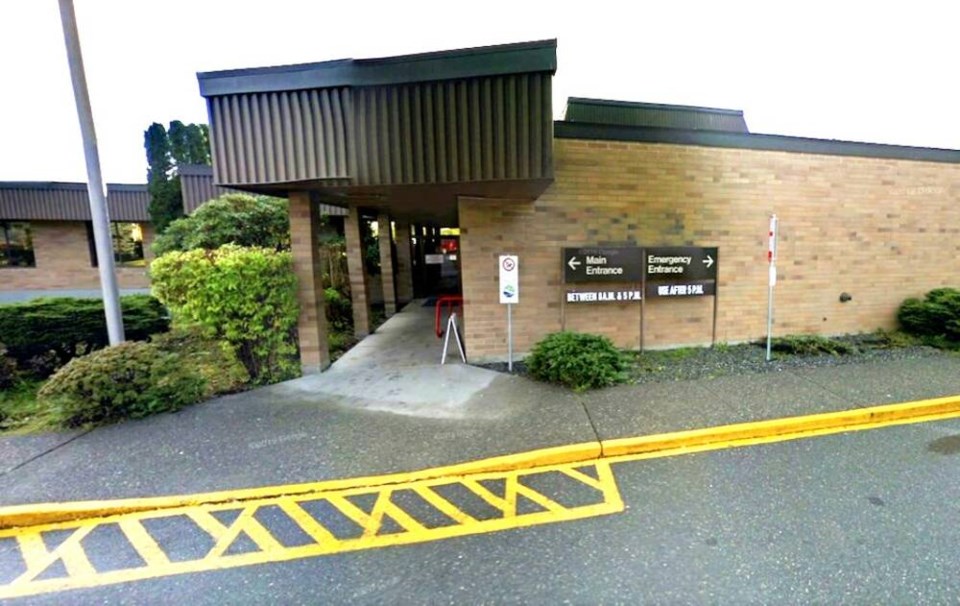Island Health is celebrating hiring 18 new staff members as part of a $30-million strategy to address a labour shortage in the North Island, but area physicians say they are bracing for a worsening situation and increasing hospital ER closings.
In January, the province announced the funding, along with the temporary overnight closing of Port Hardy and Cormorant Hospital emergency departments, to keep the Port McNeill hospital ER open 24 hours a day.
Since then, Island Health has hired 18 new health-care staff which, according to James Hanson, Island Health vice-president for Central and North Island clinical operations, is a sign things are improving.
The new hires include three registered nurses, one licensed practical nurse, one community professional for home care and public health, seven support staff, four porters, one protection services officer and one management person.
“Eighteen new hires in the grand scheme of things maybe does not sound like a significant amount, but to be completely frank, we have seen very few incoming hires in the past year, so this is thousands of a percentage point up from where we were even six weeks ago,” Hanson said in an interview.
Among the new hires are Island nurses who have chosen to relocate to the North Island at a time when the health authority is losing nurses to agencies that pay higher wages for nurses to travel for work outside of B.C. and Canada.
However, according to an internal memo obtained by the Times Colonist, doctors are calling for an urgent meeting to discuss shortages they say threaten 24-hour ER coverage in the region.
As of April, Port Hardy hospital coverage will be sporadic, with only two regular physicians working in the ER, according to the minutes of a meeting of physicians last week.
Physicians anticipate “irregular day closures” in addition to ongoing evening closures. By late June in Port Hardy, there will be a maximum of one regular physician “who is unlikely to continue working in those circumstances,” says the memo.
Meanwhile, the Port McNeill physician group is struggling to maintain coverage, with the potential that four physicians working on call will be reduced to three.
“Barring a sudden and significant surge in locum coverage, it is inevitable that at some point we will have to consolidate to maintain 24 hour coverage at one hospital site,” reads the memo. “The only question is whether this occurs in June or earlier.”
Physician recruitment and locum co-ordination “is likely the single most important priority for North Island health care,” according to the physicians.
All this comes on the heels of a rally in Port McNeill on the weekend where health-care workers and about 300 community members demanded immediate action.
Port McNeill physician Dr. Prean Armogam said the latest stressors for Port McNeill doctors working on call is that they are being asked to cover the entire region for added compensation that isn’t worth the significant paperwork required to get it.
There are currently 10 physicians in the North Island region covering emergency department shifts. Four physicians are on the regular on-call schedule at Port McNeill Hospital and three are on the regular on-call schedule at Port Hardy Hospital, but departures are expected.
“If things continue to trend the way they do on the staff side, and we start to see an uptake on the physician side, which arguably is our biggest challenge at the moment, we might be in a position within three to four months to review whether or not we can extend the hours there,” said Hanson.
The health authority said it is doing everything it can to improve health care in the region and keep all hospitals there open, but Hanson acknowledges services could be temporarily consolidated if the labour shortage worsens.
“It would be unwise for us not to plan for every potential scenario,” said Hanson. “Our teams in the region are constantly looking at what may or may not happen if we end up with more or fewer resources.” For now, Hanson said he’s optimistic. “We are hopeful that we will turn a corner here, and we’re starting to see signs that we will.”
>>> To comment on this article, write a letter to the editor: [email protected]



